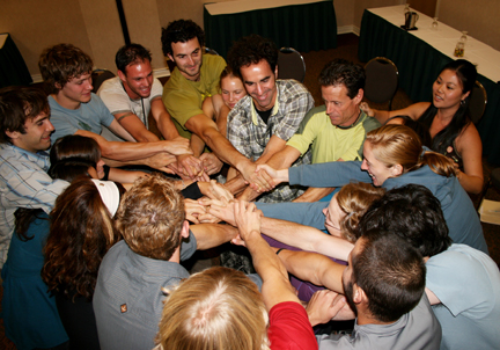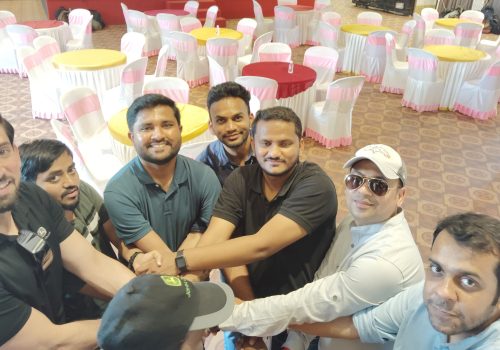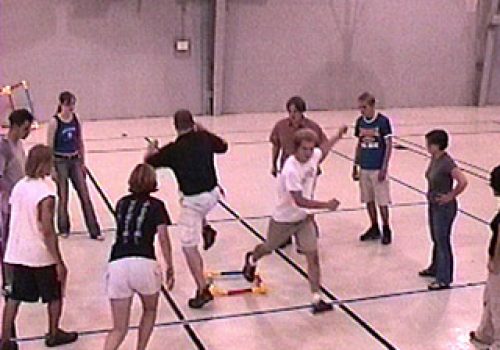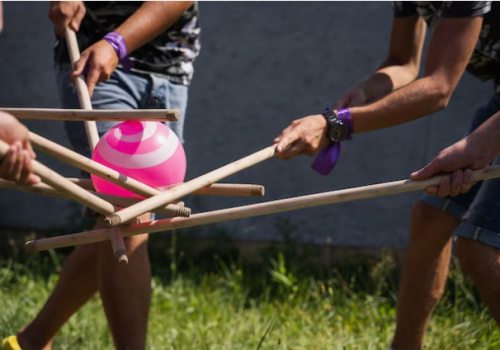Film-Making challenge: Scope and creativity
Filmmaking, more engaging and good solutions along the way, offers a unique and engaging way to enhance experiential learning. It combines creativity, collaboration, communication, problem-solving, and critical thinking skills, making it an ideal activity for team building and personal development. Participants are immersed in the world of storytelling and visual communication, allowing them to step out of their comfort zones and develop skills that are applicable in both personal and professional settings.
Filmmaking Orientation
- Introduction to Filmmaking: Begin the session with an overview of the filmmaking process, emphasizing its relevance to experiential learning. Highlighting key skills participants will help develop through this activity.
- Team Formation: Dividing participants into teams of manageable sizes helps the engagement perspective. Encourage diverse group compositions to enhance collaboration and creativity.
- Story Ideation: each team will have a guide and through brainstorming sessions to generate story ideas. Emphasize the importance of a clear narrative and how it should align with the learning objectives of the exercise.
- Scriptwriting: Teach participants the fundamentals of scriptwriting, including plot development, character arcs, and dialogue writing. Provide templates or guidelines to structure their scripts effectively.
- Pre-production: The facilitator will explain the pre-production phase, which includes tasks such as location scouting, prop and costume selection, and planning the shooting schedule. Emphasize the importance of meticulous planning for smooth execution.
- Filming Techniques: Introducing participants to basic filming techniques like framing, camera angles, lighting, and sound. Provide hands-on demonstrations to help teams understand how to capture their stories effectively.
- Filming and Direction: Allocating time for each team to shoot their film. Encourage participants to rotate roles, ensuring everyone gets a chance to experience various aspects of filmmaking, from directing to acting and operating the camera.
- Post-production: Guiding teams through the editing process using accessible software. Highlight the significance of pacing, transitions, and audio enhancement in creating a coherent and engaging narrative.
- Screening and Reflection: Will Host a screening session where each team’s film is showcased. After each screening, facilitate a discussion where participants reflect on their experiences, challenges faced, lessons learned, and how these lessons relate to real-world scenarios.
- Debrief and Application: Concluding the activity with a debriefing session. Encourage participants to articulate how the skills developed during filmmaking can be applied to their personal and professional lives. Discuss the importance of collaboration, adaptability, and creative problem-solving in various contexts.
By engaging participants in the filmmaking process, this outbound training activity not only enhances their experiential learning but also equips them with a versatile skill set that transcends the boundaries of the activity itself. It fosters personal growth, teamwork, and a deeper understanding of effective communication and creative expression.
Importance in Experiential Learning Landscape: Filmmaking as an outbound training activity holds significant importance in the experiential learning landscape due to the following reasons:
Collaboration and Communication: Participants learn how to work as a team, assign roles, and communicate effectively to bring a shared vision to life. Clear communication is essential for successful filmmaking, mirroring real-world collaborative scenarios.
Problem-solving Skills: Filmmaking involves making creative decisions on the spot, adapting to unforeseen challenges, and finding innovative solutions. Participants learn to think critically and make quick decisions under pressure, skills transferable to various professional situations.
Creativity and Innovation: Crafting a compelling story requires participants to think outside the box, fostering creativity and innovation. They explore new ways of expressing ideas and learn that diverse perspectives contribute to richer storytelling.
Time Management: Completing a film within a given timeframe necessitates efficient time management. Participants learn the importance of prioritization and effective utilization of resources.
Confidence Building: Being part of a filmmaking project boosts participants’ self-confidence as they see their contributions manifest into tangible results. Overcoming challenges in the filmmaking process empowers them to tackle challenges in their personal and professional lives.
Empathy and Perspective-taking: Participants step into the shoes of different characters, fostering empathy and perspective-taking. This experience promotes understanding and open-mindedness among team members.
Film-making Challenge: Scope and Creativity
- 10-500
- Low
- In-Person
- 150-180 min
- Problem-solving Skills
- Creativity and Innovation
- Collaboration and Communication
- Empathy and Perspective-taking

Similar Activities
- GROWING BETTER EVERY MINUTE
Get your Business
Right up There
Identifying the missing pieces in the organization or the fading magic of it or perhaps just a lack of acceptance of the same; one of these is enough to get any organization into the act. As it is been rightly said “Acceptance first step towards transformation.” You cannot change if you don’t know where to start and those around you!







